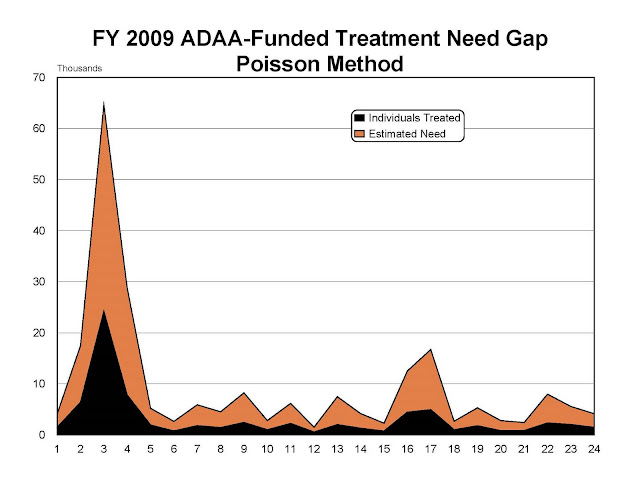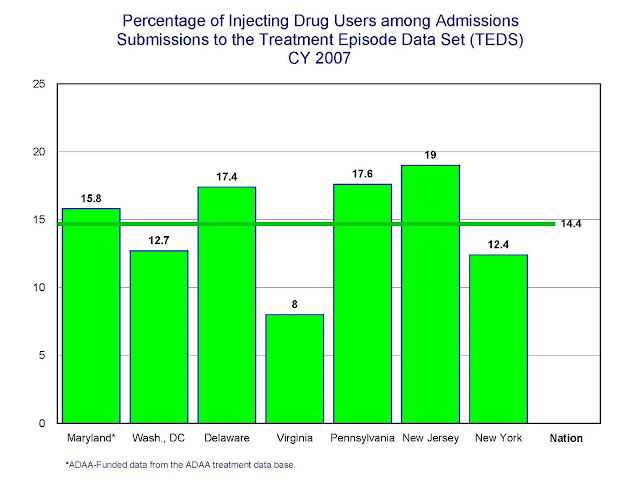Every month for the past several years, the Governor's Press Office has requested a report detailing "Accomplishments" that have an impact on the citizens of Maryland from that month, and "Good News" (PR type events, openings, conferences, etc.) for the upcoming month. The purpose being to inform the Governor of all of the good things that are happening across the state, and to let him know about events he may want to try to attend. We would like to share these reports with you, and encourage you to let us know of any significant "Accomplishments" and "Good News" in your local jurisdictions that we could include in our report to share with the Governor.
Section 1 – Key accomplishments and actions items from this month including issues/items on which action has been taken.Recovery Oriented System of Care (ROSC) related accomplishments:
• ADAA has just announced a significant re-organization of its internal divisions and functions consistent with the first Objective in Goal 3: Guide the transformation to a Recovery Oriented System of Care in Maryland of the ROSC Implementation Plan. The first Objective was to: Create senior staff level authority and accountability for the transformation process within ADAA. This has now been accomplished, and interviews for this position are in process.
• The ROSC steering committee has developed the scope of services for an RFP for a Recovery Community Organization.
• A Peer Recovery Support Service Workgroup has been developed and was tasked with developing standards and training curricula for peer support job roles throughout the State.
Maryland Strategic Prevention Framework (MSPF) related accomplishments:
• Provision of MSPF Training to 6 jurisdictions' MSPF planning teams (Baltimore City, Prince George's, St, Mary's, Anne Arundel, Allegany and Cecil Counties) to assist them to develop their local MSPF prevention strategies
• Convened training by the Northeast Center for the Application of Prevention Technology (CAPT) for MSPF Advisory Committee and work group members on Infusing Cultural Competence and Implementing Evidence Based Prevention Strategies
On January 28, 2011, the ADAA Medical Director will be co-presented a Capacity-Building Workshop on Assessment and Referral Training for Adolescent Substance Abuse and Mental Health Providers in Baltimore. This all day event is sponsored by the Johns Hopkins Urban Health Institute.
Section 2 - Good news issues for next month and expected action on those issues.
• The ROSC Learning Collaborative, which is the primary method for facilitating the implementation process in each jurisdiction and consists of Jurisdictional Coordinators or their designees who will serve as county ROSC coordinators, are planning a trip in February to Philadelphia to visit ROSC oriented system and programs.





















































